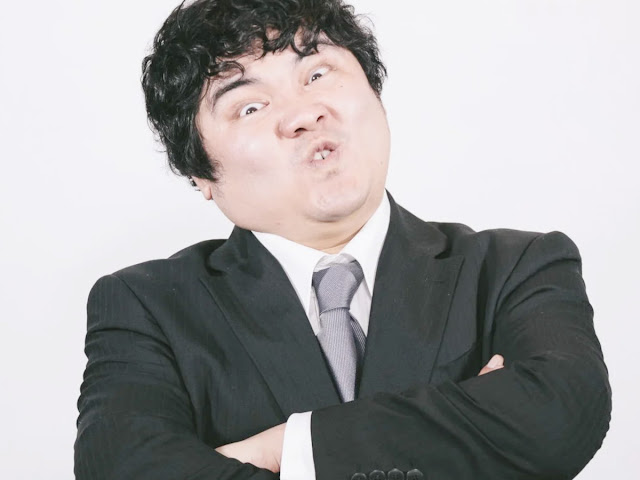A time of conflict in Japan! Spirituality
A time of conflict in Japan! Spirituality
From a spiritual point of view, we may be entering an era where divisions and conflicts will increasingly manifest in Japan.
Although divisions are appearing in various parts of the world, Japan itself may soon become a place where such conflicts intensify most dramatically.
The spiritual thinker Rudolf Steiner left words about Japan’s future. He foretold that Japan would one day become the spiritual center of the world, and that beings of light and beings of darkness would struggle over Japan in a cosmic contest.
At first glance, such a prophecy may sound unimaginable. Yet, in the context of the Law of Gaia, which describes the rise and fall of civilizations, there is also the idea that the next flourishing of civilization will emerge with Awaji Island, Japan, as its center. From this perspective, Steiner’s vision may not be entirely impossible.
It is also possible to view the situation in another way. In the coming years, tensions between China and the United States are likely to deepen further. Positioned between these two powers, Japan could very well become a focal point where divisions and conflicts arise internally.
Former Prime Minister Kishida spoke of Japan’s role in such a situation—standing at the center between China and the United States, and serving as a bridge to connect the two.
I cannot recall whether these words were spoken directly by the Foreign Minister or another member of the cabinet, but in any case, it seems unlikely that the current administration possesses the capability to fulfill such a role.
Looking at trends in the comments on Yahoo! News, one notices that many lean toward a pro-American stance. Yet, at the same time, many Japanese companies remain heavily dependent on China economically. This contradiction suggests that Japan itself may face an increasing likelihood of internal conflict.
In an era of conflict in Japan, “feminine energy” and “spirituality”
An Era of Conflict Emerging in Japan: Seen from the Perspective of "Feminine Energy" and Spirituality
From a spiritual perspective, the overall quality of the Earth’s energy is said to be shifting from “male-dominant energy” toward “female-dominant energy.”
This is not a sudden change, like flipping a black-and-white switch, but rather a gradual transition—much like the relationship between the sun and the moon—exerting its influence across the globe, regardless of gender.
The “female-dominant energy” is still only in its opening stage. In this early phase, the emotional energy of the feminine often manifests as opposing forces such as joy and sorrow, anger and love. As a result, society is more prone to polarization, contradictions, frequent reversals in direction, and wave-like fluctuations.
Men tend to “suppress and control” their emotional energy, making both mind and body more rigid, while women tend to “express and release” emotional energy, making both mind and body more flexible. Since transformation occurs more easily through softness than rigidity, the age we are entering—driven by female-dominant energy—will be an era of rapid change.
On a global scale, conflicts have already been surfacing domestically in many nations—over vaccines, among other issues—and Japan too is now in a state where divisions are more likely to arise.
Awaji Island, according to Shinto mythology, is the first island created together by the male deity Izanagi and the female deity Izanami. It is, therefore, deeply tied to the heart of Japan’s spiritual origins.
Looking ahead, this value system may become a central keyword for the world itself, and some manifestation of this is likely to emerge in Japan.
In an era of conflict in Japan, “spiritual growth” and “spirituality”
From a spiritual perspective, the potential for conflict in Japan may conceal a deeper purpose—the growth of the soul.
As I have discussed many times in this blog, the growth of knowledge is built upon individual moments of “awareness,” and likewise, the growth of the heart—what we call the growth of spiritual character (reikaku)—is also nurtured through one realization after another.
When one’s spiritual character rises, their very presence gains strength in a spiritual sense. Their creative power to fulfill the hearts of others grows, and the more “awareness” one attains, the broader their perspective on life becomes. This is not a difficult concept; it is essentially about becoming an “adult” in a spiritual sense.
On the other hand, to have a “low spiritual character” means that one’s presence is weak in a spiritual sense. Such individuals tend to prioritize their own fulfillment over enriching others, and because their awareness is limited, their view of life also becomes narrow. This, too, is not a difficult concept; it is essentially about remaining a “child” in a spiritual sense.
If Japan enters an era of conflict, then for the growth of the soul, it requires “lessons” that awaken awareness.
And the conditions that bring about the greatest opportunities for awareness are those where the contrasts—black and white—are most sharply defined. From a spiritual standpoint, it is possible to interpret the emergence of conflict in Japan as part of the process of fostering growth in spiritual character.






Comments
Post a Comment